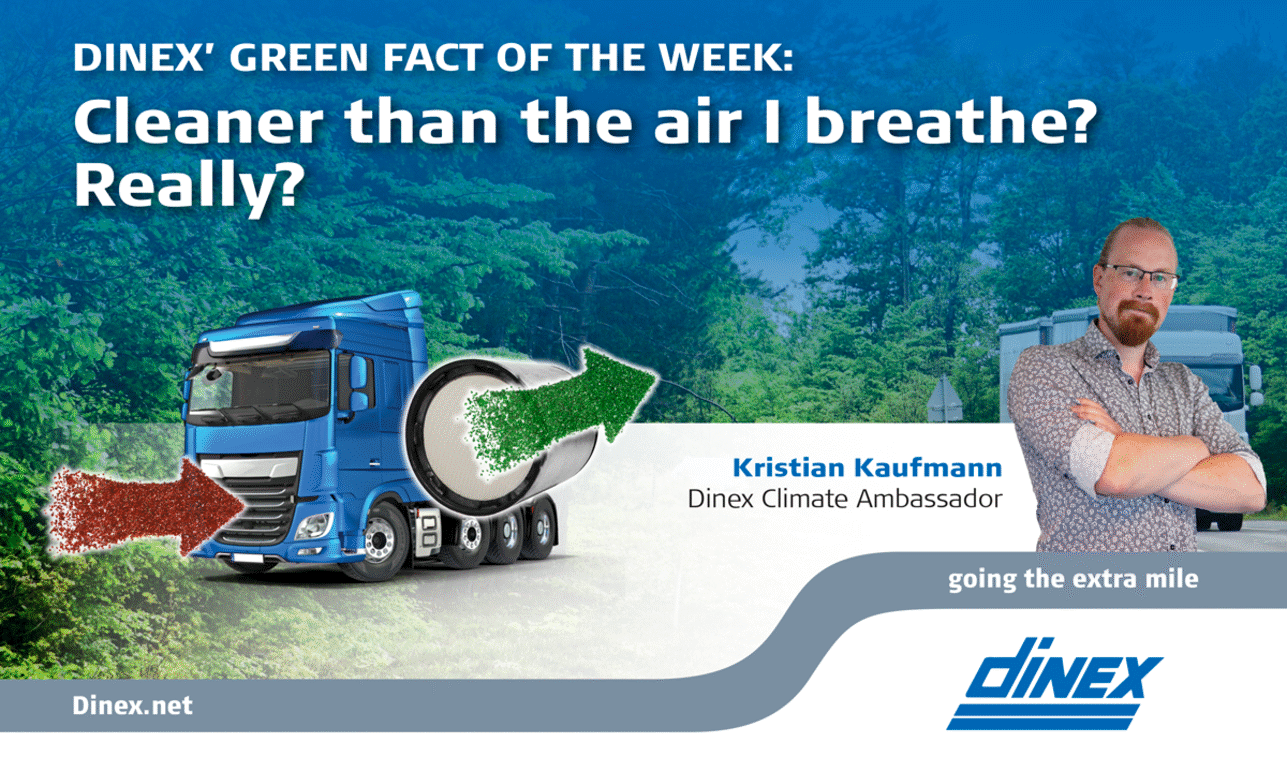- News and events
- News
- 2021.09_Cleaner than the air I breathe? Really?

Air pollution with particulate matter is closely linked to a number of respiratory diseases, and it is estimated that over 400.000 premature deaths in Europe each year is attributable to PM2.5 pollution (particles less than 2,5 µm – source: European Environment Agency), and especially the quantity of these ultra-fine particles is a critical health issue.
According to this report, 11% of the PM2.5 pollution in Europe in 2018 originates from Road Transport.
So what can we do about that?
With Euro VI introduced in 2013, Heavy Duty Trucks has been under such strict restrictions that a Particulate Filter has been nearly inevitable for compliance with the strict limitation of maximum 6x1011 particles per kWh of Engine work – roughly translated to 50.000 particles pr. cm3 of exhaust gas emitted. Today, 1/3 of the Heavy Duty vehicle population in Europe is Euro VI compliant.
But what does this mean for the air around us? Let’s look at concentrations:
One of the more recent studies published within this field investigated Real Driving Emissions from several Diesel Heavy Duty Trucks with particulate filters (ranging from an 8 liter 350 hp engine, up to a 16 liter with 750 hp) in the area around the Øresund region between Denmark and Sweden.
The results showed remarkably how the tail pipe emissions rarely came above 2.000 particles pr. cm3. In comparison, ambient air in most populated areas of Denmark were in 2019 often minimum 4.800 particles pr. cm3, and in urbanized areas even above 11.000 (see detailed map published by the University of Aarhus).
A Particulate Filter is designed as a physical trap for particulate matter, so the filtration efficiency is not affected significantly by operating conditions, and works just as well during idling, start-up, urban, and highway operation.
So: Is Exhaust Gas cleaner than the air you breathe?
Well, these results surely indicate that it is hard to find populated places where average particle concentrations are lower than those from a filtered exhaust pipe.
Dinex' Green Fact of the Week is the title of a series of blog posts by Dinex Climate Ambassador Kristian Kaufmann. The purpose is to use facts and technical arguments to promote the most pragmatic and effective solutions to further reduce the transport industry's climate and environmental impact - for an even cleaner and greener future.